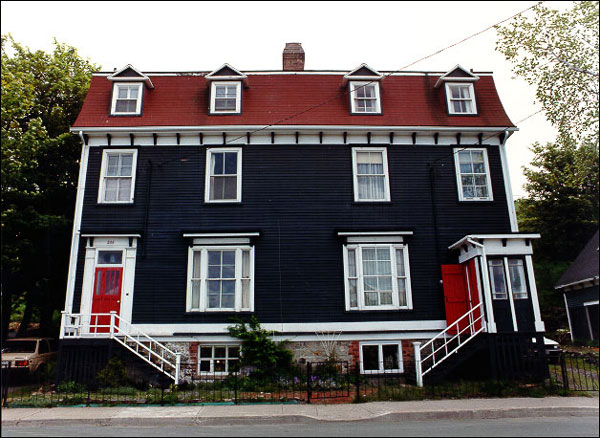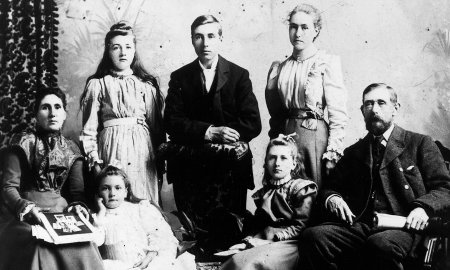
|
|
HomePort  |
|
Walter
Edward
White
1879-1969
|
|
|
 |
The journals of Walter Edward White written during 1903-1906 tells a unique but not uncommon story. Born the grandson of prominent politician and international ship's captain Hon. Edward White Sr. and his wife Anne Weir, young Walter enjoys the family passion for experimental agriculture in an unlikely environment. He develops his passion for Methodism and Christian service, meets his future wife Edith Knight, and enters the world of the Water Street merchants as a clerk in St. John's, Newfoundland. |
| Walter's father, Edward White Jr. continues many family activities - gaining election to the House of Assembly - becoming a sealing Captain - maintaining mercantile operations in St. John's. The family lived on the South Side of the harbour in a two family house (duplex) called the New House built for Edward Jr. and his brother Richard, by their father Edward Sr. His mother was Emma Jane Bemister. |  |
When Walter was fifteen his father
provided
him an offer to start work as an apprentice druggist for five years
when
his father would start him in his own shop or become a lawyer,
intimidated
by the court system, he chose pharmacy. "I had to
start
work at 7 every morning and work til 11 PM every night except Sundays
when
we opened at 10 AM - salary $80 a year - not quite $ 7 a month".
After six months in the druggist trade Walter chose to return to school.

Employed in 1903 with Bowring Brothers & Co a large Water St. "importer" as merchants were called. He worked as a clerk in the hardware department of what became the largest department store in the colonial city.
After becoming manager of the hardware department he left Bowrings to become a successful Water St. merchant in his own right conducting wholesale hardware operations from St. John's as what was then called a Manufacturer's Agent. Connected to merchant and sea captain families including Bartletts, Bemisters and Howells; his marriage to Edith Knight added family ties to Ayers, Steers, Pratts and Pitts families which had equally played a significant role in the development of Newfoundland.
Although much has been written on the mercantile life of Water Street in various decades of Newfoundland history, this slim diary shows the life of a young clerk, the plants he grows and harvests on the family summer property - known as the Farm - on the outskirts of the city in an area then called Brookfield (currently part of Bowring Park).
Walter visits the residents of the Poor House as part of his service as a Methodist layman. A Grand Jury in 1907 found the poor house to be "shamefully'' overcrowded with the imbecilic, diseased, sick and dying, with no provision for isolation, treatment or rehabilitation. The grand jurors concluded that it was the "saddest place in Newfoundland''; no one could visit it without feeling "chastised and dismayed''.
Much of his activities centred around teaching Sunday School at George Street Church, attending Epworth League meetings a Methodist youth group meetings and the Sons of England a benefit society to assist needy Protestants of English extraction and to promote loyalty to the monarchy. He enjoyed fishing and hunting within easy traveling distance of home. His journal tells that he purchased a violin, and a bicycle to assist his travels to the farm.
His notes about public activities and
celebrations
as well as the comings and goings of important ships paint a tiny
sketch
of life in a colonial capital at a period of great pride in what had
been
achieved - the railway provided efficient transportation along
with
steam ships - the great trials that Newfoundland would face
financially
and politically and the effect of hugh losses at sea, and in
war,
had not yet tarnished the epic adventure, that is Newfoundland - a
loyal
colony faced with its own reality. Still being transcribed and
edited
the
Journal
of Walter Edward White is now available through HomePort.
| HomePort Quick List | To Journal index | Search HomePort | Send e-mail to: HomePort |
| . |